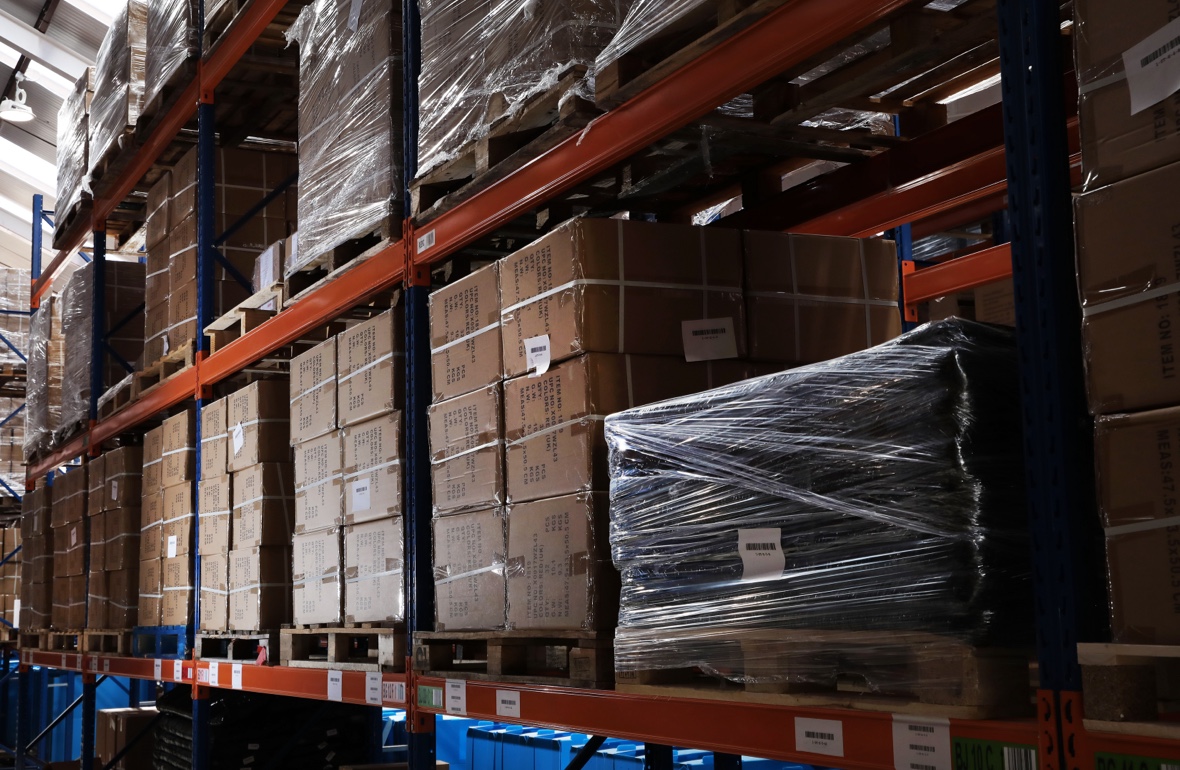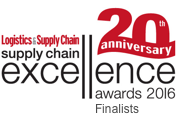Article Takeaways
- 3PL providers enhance efficiency by managing warehousing, transportation, and fulfilment.
- Outsourcing logistics reduces costs and allows businesses to scale flexibly.
- Advanced technology in 3PL improves visibility, tracking, and forecasting.
- 3PL partnerships support global expansion and cross-border trade compliance.
- Sustainable logistics solutions help businesses reduce environmental impact.
- Overcoming last-mile delivery challenges is crucial for customer satisfaction.
- Automation in 3PL addresses labour shortages and improves operational speed.
Are rising delivery costs and complex logistics slowing your eCommerce growth? Discover how 3PL in supply chain solutions can transform your business. In today’s fast-paced market, modern supply chain management demands efficiency and agility.
Third-party logistics (3PL) providers offer specialised services like warehousing, shipping, and fulfilment, allowing you to focus on growing your business. For UK eCommerce businesses facing increasing customer demands and global competition, understanding the critical role of 3PL is essential.
The landscape of supply chain management (SCM) has undergone a significant transformation in recent years. Driven by technological advancements, changing consumer expectations, and global market volatility, modern supply chains have evolved from simple linear models to complex, interconnected networks.
In this increasingly sophisticated environment, third-party logistics (3PL) providers have emerged as critical partners for businesses seeking to navigate the challenges of contemporary commerce.
3PL refers to the outsourcing of logistics operations to specialised external providers who manage essential functions such as warehousing, transportation, distribution, and fulfilment.
As global trade expands and supply chains become more intricate, the strategic importance of 3PL in supply chain optimisation has grown exponentially. For UK eCommerce businesses facing competitive pressures, sustainability mandates, and customer demands for faster delivery, understanding the role of 3PL in modern supply chain management is no longer optional, it’s imperative for survival and growth.
Understanding the Key Concepts of 3PL in Supply Chain Management
Definition of 3PL in Supply Chain Management
3PL in supply chain management encompasses the outsourcing of logistics and fulfilment operations to external specialists. These 3PL providers are responsible for managing critical components of the supply chain, including inventory management, warehousing, picking and packing, transportation, and distribution.
By integrating 3PL supply chain management into their operations, businesses can focus on their core competencies while leveraging the expertise and infrastructure of logistics specialists.
In the context of modern SCM, 3PL providers serve as strategic partners rather than mere service vendors. They offer comprehensive solutions that extend beyond traditional third-party warehousing in supply chain management to include technology integration, data analytics, and continuous process improvement. This partnership approach enables businesses to respond more effectively to market changes, consumer preferences, and operational challenges.
Purpose and Evolution of 3PL in Supply Chain Management
The role of 3PL has evolved significantly from its origins as basic outsourced transportation and warehousing services. Initially, businesses primarily engaged 3PL providers to reduce costs and address capacity constraints. However, in today’s complex global marketplace, 3PL fulfils a much broader purpose:
- Complexity Management: 3PLs help navigate the intricacies of global supply networks, international shipping regulations, and multi-channel distribution.
- Technology Integration: Modern 3PL providers bring sophisticated technological capabilities that would be prohibitively expensive for many businesses to develop independently.
- Supply Chain Resilience: By distributing inventory across strategic locations and maintaining flexible capacity, 3PLs enhance supply chain resilience against disruptions.
- Customer Experience Enhancement: Specialised 3PL eCommerce fulfilment services support faster, more accurate deliveries that meet rising consumer expectations.
The transition from traditional to modern supply chain management has been marked by the increasing strategic importance of 3PL partnerships. Where traditional SCM focuses primarily on cost reduction and operational efficiency, modern approaches prioritise agility, visibility, and customer-centricity—all areas where sophisticated 3PL providers excel.
Benefits of 3PL in Modern Supply Chain Management

Cost Efficiency & Scalability
One of the most compelling advantages of integrating 3PL into your supply chain strategy is the potential for significant cost savings. By leveraging the economies of scale that 3PL providers achieve through their extensive networks and shared resources, businesses can convert fixed logistics costs into variable expenses that fluctuate with actual usage.
This scalability becomes particularly valuable during:
- Seasonal peaks when temporary capacity expansion is needed
- Market entry phases when testing new products or territories
- Growth periods when rapid scaling is required without capital investment
Cloud 3PL solutions further enhance this flexibility by offering pay-as-you-go models that allow businesses to access enterprise-grade capabilities without committing to long-term contracts or minimum volume requirements.
Expertise & Specialisation
Modern supply chains demand specialised knowledge across multiple domains, from transportation optimisation to international trade compliance. By partnering with a 3PL provider, businesses gain access to logistics professionals with deep expertise and continuous exposure to industry best practices.
For instance, Cloud Fulfilment’s specialised kitting solutions demonstrate how 3PL expertise can transform complex assembly and packaging operations into streamlined processes that reduce errors and accelerate delivery. This specialisation extends to sector-specific requirements, with many 3PLs developing particular proficiency in areas such as:
- Temperature-controlled logistics for perishables
- Dangerous goods handling and compliance
- High-value item security protocols
- Luxury product packaging and presentation
Technology Integration
In modern supply chain management, technology serves as both an enabler and a differentiator. Advanced 3PL providers leverage sophisticated systems to drive operational excellence:
- Warehouse Management Systems (WMS): Cloud-based 3PL software offers real-time inventory visibility, optimised picking paths, and automated replenishment triggers.
- Electronic Data Interchange (EDI): EDI supply chain management facilitates seamless information flow between trading partners, reducing errors and accelerating order processing.
- Internet of Things (IoT): Connected devices enable condition monitoring, geolocation tracking, and predictive maintenance.
- Artificial Intelligence: Predictive analytics support better forecasting, dynamic routing, and continuous process optimisation.
Access cutting-edge logistics technology without the huge upfront costs by partnering with a 3PL.
Global Reach & Sustainability
Modern 3PLs provide the infrastructure and expertise necessary to support international expansion while navigating the complexities of cross-border commerce. This global reach encompasses:
- Multiple fulfilment centres are strategically positioned to reduce delivery times
- International shipping expertise with customs documentation support
- Import One-Stop Shop (IOSS) integration for VAT compliance
- Multi-carrier partnerships to optimise delivery routes and costs
Simultaneously, leading 3PL providers are increasingly prioritising sustainable supply chain management practices. These initiatives include:
- Carbon footprint reduction through route optimisation and consolidation
- Eco-friendly packaging solutions that minimise waste
- Energy-efficient warehousing with renewable power sources
- Reverse logistics programs that support circular economy models
By leveraging these sustainability capabilities, businesses can align their supply chains with environmental goals without sacrificing operational performance.
Challenges of 3PL in Modern Supply Chain Management
Supply Chain Visibility & Disruptions
Despite technological advances, maintaining complete visibility across complex supply networks remains challenging. When logistics operations are distributed across multiple 3PL partners and geographical locations, creating a unified view becomes increasingly difficult.
Cloud Fulfilment addresses this challenge through integrated technology solutions that provide:
- Real-time inventory and order status updates
- Exception alerts for potential disruptions
- Performance dashboards with KPI tracking
- Predictive analytics to anticipate potential bottlenecks
These visibility tools are essential for managing the disruptions that have become increasingly common in global supply chains, from weather events to geopolitical tensions.
Rising Costs & Inflation
The logistics sector has faced significant inflationary pressures in recent years, with increases in:
- Fuel and energy costs
- Labour wages and benefits
- Real estate and warehouse leasing expenses
- Material costs for packaging and handling equipment
These rising costs present a challenge for 3PL providers and their clients. Effective 3PL partnerships require transparent pricing models and collaborative approaches to cost management, where efficiency improvements can help offset inflationary impacts.
Last-Mile Delivery & Customer Expectations
The final stage of delivery—the “last mile”—represents both the most expensive segment of the supply chain and the most visible to end customers. Modern consumers increasingly expect:
- Same-day or next-day delivery options
- Precise delivery windows with real-time tracking
- Flexible delivery location choices
- Sustainable delivery methods
3PL providers must continuously innovate in this challenging space, balancing speed, cost, and environmental considerations while maintaining the delivery experience that brands promise to their customers.
Labour Shortages & Automation
The logistics industry has experienced persistent labour shortages, particularly in warehouse operations and driving roles. This workforce challenge has accelerated the adoption of automation technologies, including:
- Robotic picking and packing systems
- Autonomous guided vehicles (AGVs)
- Automated sortation equipment
- Exoskeletons and ergonomic aids for human workers
Forward-thinking 3PL providers view automation not as a replacement for human workers but as a means to enhance their productivity and improve working conditions in physically demanding environments.
Sustainability Pressures
Environmental considerations have moved from peripheral concerns to central business imperatives. 3PLs face growing pressure to:
- Reduce carbon emissions across operations
- Minimise packaging waste and plastic usage
- Support circular economy practices
- Provide transparent environmental reporting
Meeting these sustainability challenges requires significant investment and innovation from 3PL providers, but also presents opportunities for differentiation in an increasingly eco-conscious marketplace.
The role of 3PL in modern supply chain management has evolved far beyond simple outsourced logistics. Today’s leading 3PL providers function as strategic partners, technology enablers, and innovation catalysts that help businesses navigate the complexities of global commerce while enhancing customer experience and supporting sustainability goals.
For eCommerce businesses in the UK, the right 3PL partnership can deliver compelling competitive advantages through cost optimisation, operational excellence, and enhanced customer satisfaction. As supply chains continue to evolve in response to technological advancement and changing market dynamics, the strategic importance of 3PL relationships will only increase.
Make Your Supply Chain More Efficient With Cloud Fulfillment 3PL Services
Cloud Fulfilment stands at the forefront of this evolution as a tech-driven 3PL provider that combines logistics expertise with advanced technology solutions. By leveraging our specialised capabilities in areas such as kitting, international shipping, and sustainable fulfilment, eCommerce brands can achieve the scalability, efficiency, and customer experience necessary for success in today’s demanding marketplace.
Ready to transform your supply chain with expert 3PL support? Contact Cloud Fulfilment today to discover how our technology-driven solutions can help your business achieve greater efficiency, scalability, and customer satisfaction.
Frequently Asked Questions About The Role Of 3PL in Supply Chain Management
What is 3PL in supply chain management?
3PL (third-party logistics) in supply chain management refers to the outsourcing of logistics operations—including warehousing, transportation, and fulfilment—to specialised external providers who manage these functions on behalf of a business.
How does 3PL contribute to modern SCM practices?
3PL enhances modern supply chain management by providing scalability, specialised expertise, technology integration, and global capabilities that enable businesses to achieve greater agility, efficiency, and customer satisfaction in their supply chain operations.
What are the benefits of integrating EDI into supply chain logistics?
EDI (Electronic Data Interchange) streamlines communication between trading partners by standardising document formats and automating information exchange, resulting in reduced errors, faster order processing, improved inventory management, and enhanced supply chain visibility.
How can businesses use 3PL to achieve sustainable supply chain management?
Businesses can leverage 3PL partnerships to implement sustainable practices such as route optimisation to reduce emissions, eco-friendly packaging solutions, energy-efficient warehousing, and reverse logistics programs that support circular economy initiatives.
What is cross-docking, and how does it enhance efficiency?
Cross-docking is a logistics practice where products from incoming shipments are transferred directly to outbound vehicles with minimal storage time. This approach reduces handling costs, decreases inventory holding requirements, and accelerates delivery times by eliminating the traditional warehousing step.
How does Cloud Fulfilment support global shipping?
Cloud Fulfilment supports global shipping through strategic fulfilment centre locations, expertise in international documentation and customs requirements, IOSS integration for VAT compliance, and partnerships with multiple carriers to optimise international delivery routes and costs.


